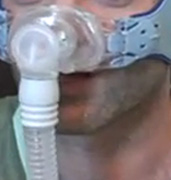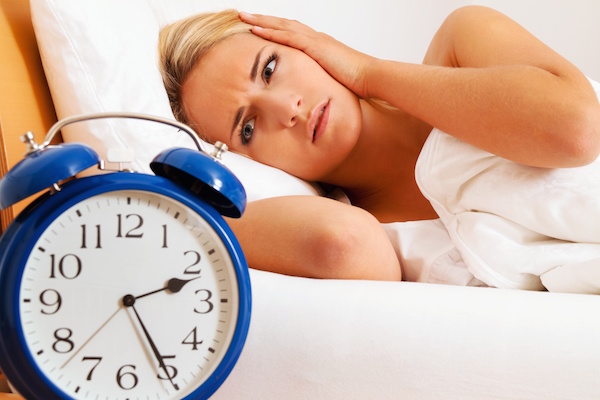
WEDNESDAY, June 13 (HealthDay News) — In younger men, sleep apnea and impotence often go hand in hand. But a small study finds that treating the sleep disorder with a mechanical device can jump-start a guy’s sex life.
Erectile dysfunction resolved in 17 of 42 men who used machines that maintain air flow throughout the night. And even those without sexual dysfunction who used the CPAP (continuous positive airway pressure) devices reported a boost in sexual performance, the study found.
While earlier studies have produced similar results, this one is especially strong, said Dr. Steven Park, an ear, nose and throat physician and sleep medicine specialist familiar with the new findings.
The study “has huge implications,” said Park, of Montefiore Medical Center in New York City. “If you snore or you’re tired and you’re having intimacy issues, consider getting tested for obstructive sleep apnea,” he said.
Sleep apnea treatments have revitalized his male patients, Park noted. “In my practice, one of the most common comments is that they’re having erections again upon wakening in the morning,” he said.
“Bed partners report improved relations,” Park added.
The National Sleep Foundation estimates that 18 million Americans have obstructive sleep apnea, but 90 percent may not know it.
People with sleep apnea subconsciously awaken many times a night — even dozens of times an hour — because their airways close, disrupting their breathing. Sleep apnea sufferers often snore heavily and are tired during the day.
Erectile dysfunction is common among men with sleep apnea, said Park, author of the book Sleep, Interrupted: A physician reveals the #1 reason why so many of us are sick and tired.
“Having multiple breathing pauses at night causes a massive stress response, increasing your fight-or-flight response, and reproductive function is your last priority when you’re being chased by a tiger or in even fighting off an attack,” Park said.
“Also, arousal and erection are activated by the parasympathetic nervous system, which controls digestion and reproduction, so too much stress will lessen these functions,” he explained.
In the new study, researchers at the Walter Reed Military Medical Center in Bethesda, Md., followed 92 men, average age 46, who began using CPAP machines after being diagnosed with obstructive sleep apnea. While sleeping, patients wear masks connected to machines that send pressurized air into the throat to keep the airway open throughout the night.
The average participant was overweight. Forty-six percent reported erectile dysfunction, and 27 percent said they had diminished libido.
After six months, the researchers found that sexual function and satisfaction improved in the CPAP device users, and erectile dysfunction vanished in 41 percent of those who’d had erection issues.
Joyce Walsleben, a sleep medicine specialist and associate professor of medicine at the New York University School of Medicine, said the devices probably boost energy by improving sleep.
“It may well have to do with increased oxygen and the production of hormones and other neurotransmitters being reset,” Walsleben said.
CPAP machines aren’t for everyone. They’re expensive — prices range from several hundred dollars to more than $1,000 — and some sleep apnea patients can’t tolerate them. However, other treatments, such as surgery, exist for sleep apnea.
As for whether wearing a mask-and-hose getup ruins the mood in bed, Walsleben had this to say: “I can tell you that from people I know with the device, happy bed partners are much more interested in sex — before or after sleep — than those who are fighting over snoring or sleeping in separate rooms.”
The study — scheduled for presentation Wednesday at the Associated Professional Sleep Societies meeting in Boston — doesn’t prove that CPAP will boost a man’s performance, or resolve sexual dysfunction. It merely shows an association between apnea treatment and a happier sex life.
Treating sleep apnea often improves other risks associated with the sleep disorder, including high blood pressure.
Data and conclusions of research presented at medical meetings should be considered preliminary until published in a peer-reviewed medical journal.
More information
The U.S. National Library of Medicine has more on sleep apnea.

